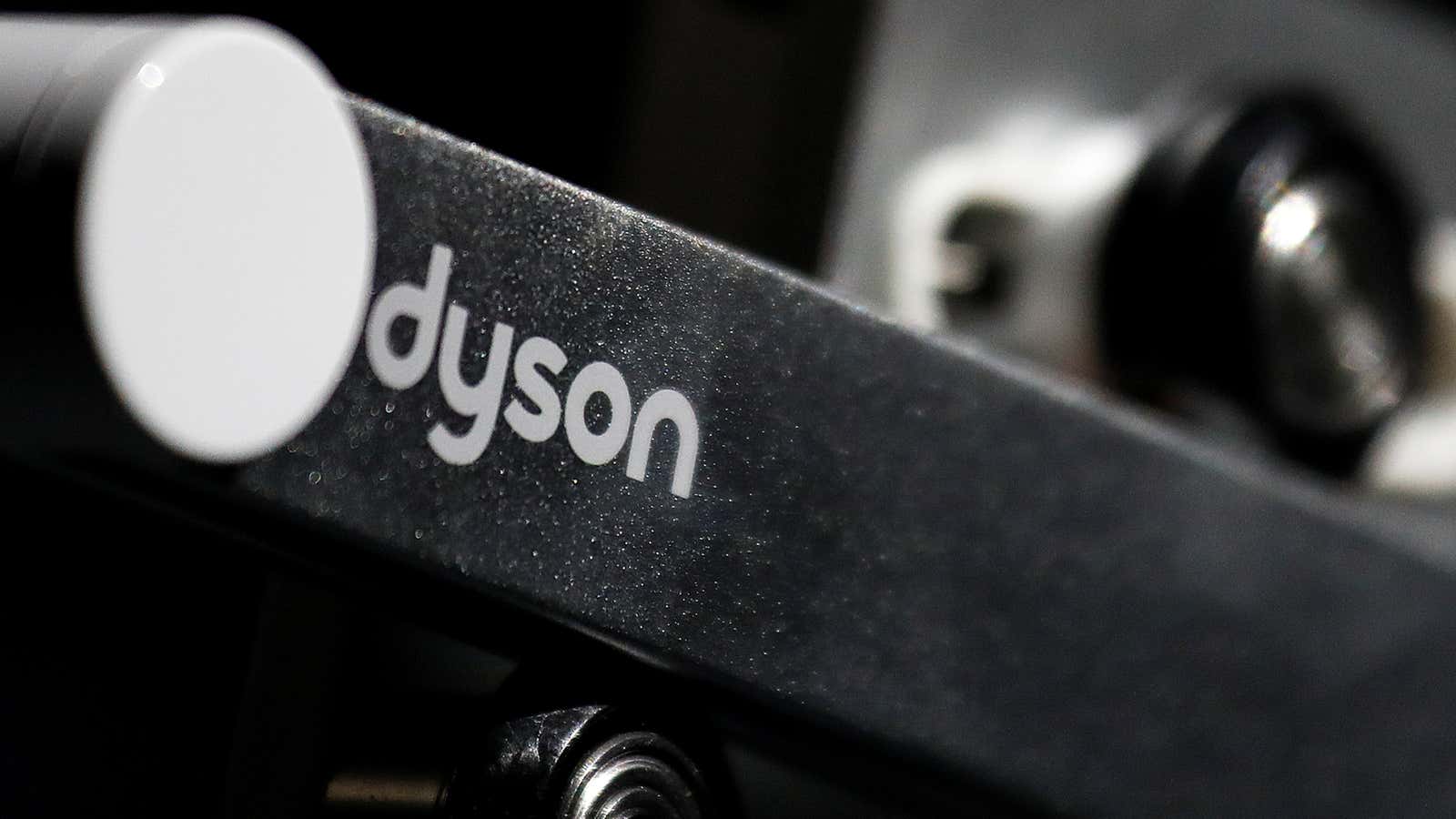Dyson is famous for its high-design vacuum cleaners, hair dryers, and bladeless fans. Now it wants to become famous for its electric cars, too. The company said yesterday (Oct. 23) that it has chosen Singapore as the destination for its first factory.
The announcement has raised a lot of an excitement—and a lot of questions. Here are the answers to at least some of them.
Why does a consumer electronics company want to build cars?
Electric cars are an increasingly appealing market thanks to several factors. Batteries have got a lot better. Governments in countries like China and Norway are incentivizing citizens to adopt electric vehicles in a bid to cut pollution and reduce carbon emission, and more importantly, governments around the world are announcing plans to ban gasoline cars. The combination of all these factors has buoyed Tesla in the US and BYD in China, while catching the established players in the automotive industry off-guard.
Car businesses, if run well, can be hugely profitable. Tech giants like Apple are getting into the game, too. So why not Dyson?
Fine. But why Singapore?
It sounds like an odd choice. The city-state is an expensive place. Back in the 1980s, Ford Motor Company shut down its plant in Singapore as it wasn’t able to compete in the market.
But Dyson already has a manufacturing base there, and it says that the high cost of labor and land will be offset through Singapore’s engineering skills and high-tech manufacturing expertise. Moreover, as part of the Association of Southeast Asian Nations, Singapore has a free-trade deal with China, the world’s largest market for electric cars.
Dyson plans to spend £2 billion on its car efforts: Half on developing the car itself, and half on the batteries that will power it. Dyson won’t say whether the Singapore government will be investing, too. But it would likely benefit Singapore to provide some funding in return for the creation of jobs and increasing trade.
What advantages does Dyson have?
Dyson has a reputation of building the best-in-class of whatever product line it enters, right down to an aerospace-inspired automatic hair curler. Better still, Dyson began working on electric cars back in 2014. That means, though it’s behind Tesla by a decade, it’s ahead of other, newer players in the game like Apple and Nio. Its research and development unit is based in the UK, and it has received some financial support from the UK government.
“So we are not Johnny-come-latelies on this. We had seen it coming, invested in batteries and started our project,” James Dyson, the company’s founder, told Wired. Dyson plans to have three car models, with the first launching as soon as 2021
Speaking of batteries, what’s Dyson got?
Batteries are the most expensive part of an electric car. If a car company can come up with a radically better battery, it can outcompete any rival.
In 2015, Dyson spent $90 million to acquire Sakti3, a startup that claimed it had a solid-state battery. These batteries, when realized, are expected to be able to pack in a lot more energy, while being safer and cheaper than current technology.
But as a Quartz investigation revealed, Sakti3’s battery wasn’t living up to the hype. Last year, the CEO of Sakti3 quietly left. This year, according to company accounts, Dyson wrote off £46 million ($60 million) on the Sakti3 investment.
Dyson has said previously that it is working on different types of batteries. But there are signs that the efforts may not be progressing as quickly. “All options are on the table,” Ian Robertson, a non-executive director on Dyson’s board, told the Financial Times, including buying batteries from external suppliers.
⚡️ Quartz is running a series called The Race to Zero Emissions that explores the challenges and opportunities of energy-storage technologies. Sign up here to be the first to know when stories are published.
